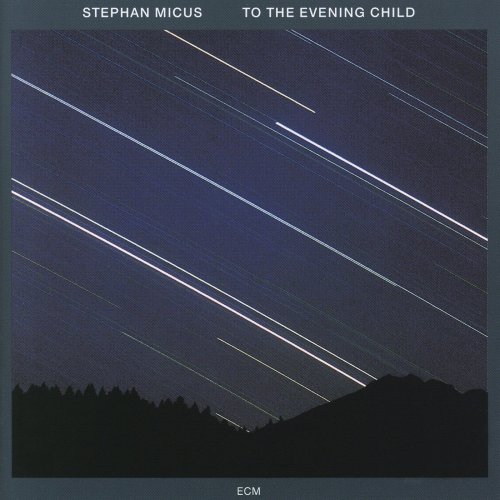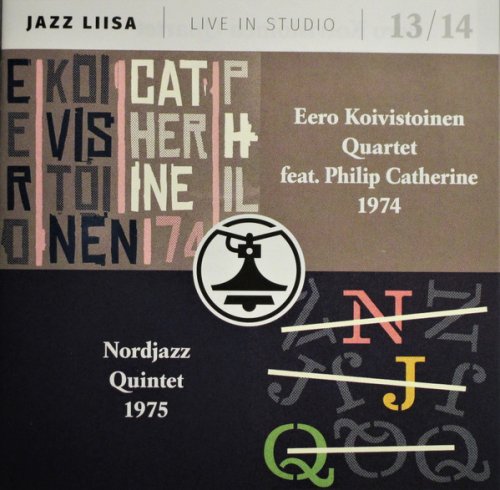Stephan Micus - To the Evening Child (1992)

Artist: Stephan Micus
Title: To the Evening Child
Year Of Release: 1992
Label: ECM Records
Genre: Contemporary Jazz
Quality: FLAC (tracks+.cue, log, Artwork)
Total Time: 47:02
Total Size: 220 MB
WebSite: Album Preview
Tracklist: Title: To the Evening Child
Year Of Release: 1992
Label: ECM Records
Genre: Contemporary Jazz
Quality: FLAC (tracks+.cue, log, Artwork)
Total Time: 47:02
Total Size: 220 MB
WebSite: Album Preview
01. Nomad Song (9:04)
02. Yoko's Eyes (5:56)
03. Young Moon (6:04)
04. To the Evening Child (9:39)
05. Morgenstern (2:13)
06. Equinox (9:54)
07. Desert Poem (4:12)
Stephan Micus’s fifth album for ECM is a lullaby. I know nothing of its origins, but I would be surprised if he hadn’t just become a father before recording it, so freshly paternal are its meditations. This time, Micus turns the kaleidoscope of his endless talent to reveal steel drums as the sound color of the moment. These provide a resonant, gamelan-like undercurrent throughout and become more biologically attuned as they sing beneath his mallets. Yet it is his actual voice that awakens the heart in “Nomad Song,” scooping earth in such a way that all life falls through its fingers unharmed, leaving only a heap of unconditional love. The newness of creation abounds in “Yuko’s Eyes,” in which Micus sings now through a bowed dilruba, turning infancy inside out to reveal a future of hope and dreams fulfilled. “Young Moon” pairs that constant steel drum with suling (an Indonesian bamboo flute) and kortholt (a capped reed instrument popular during the Renaissance) for a softly glittering wave of light, given corporeal shape through open-throated calls. The title track welcomes ney, through it gilding the album’s aquatic themes with moonlight. It grows a feather for every breath that falls, as if reaching out to any and all children who slumber in fear and security alike. From these Micus spins a wealth of comfort, trembling to the tune of his heartbeat. There is perpetuity in this dream, from which one is born and to which one returns when circadian rhythms have become a thread of silence. “Morgenstern” stretches a sky bridge from cloud to cloud with steel-drummed steps, while “Equinox” lives in penumbral shadow, crowning a procession of closed-mouthed reverence. Each pair of hands offers a flower to “Desert Poem.” Eyes shielded by sleep, Micus dips his toes in the Milky Way’s waters and dries himself against a tree that grows alone, save for the fallen seed who awaits for the light of dawn to bless it with the kiss of tomorrow.
This music sounds in those hushed spaces where the universe inhales, the sound that keeps all celestial bodies spinning. Like the language in which Micus sings, its words convey meaning to a part of us deep and out of grasp. But for the duration of an album, at least, we can feel it as presently as the rain on our faces.
This music sounds in those hushed spaces where the universe inhales, the sound that keeps all celestial bodies spinning. Like the language in which Micus sings, its words convey meaning to a part of us deep and out of grasp. But for the duration of an album, at least, we can feel it as presently as the rain on our faces.

![When I Return - The Weight Of Bloom (2026) [Hi-Res] When I Return - The Weight Of Bloom (2026) [Hi-Res]](https://www.dibpic.com/uploads/posts/2026-02/1771391261_qn90r0j477aml_600.jpg)



![Terrace Martin & Calvin Keys - The Near North Side (2026) [Hi-Res] Terrace Martin & Calvin Keys - The Near North Side (2026) [Hi-Res]](https://www.dibpic.com/uploads/posts/2026-02/1771141377_b80maiy5ke658_600.jpg)
![Vivian Rosie - Twilight Voodoo (2026 Remaster) [Hi-Res] Vivian Rosie - Twilight Voodoo (2026 Remaster) [Hi-Res]](https://www.dibpic.com/uploads/posts/2026-02/1771389602_cover.jpg)

